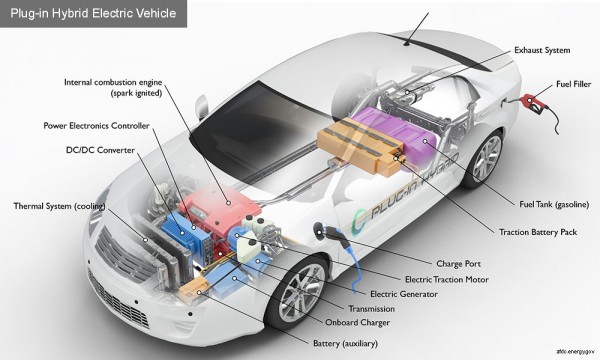
Exploring the Hybrid Car Revolution: A Comprehensive Guide
- Hybrid Technology
- 29 Sep 2023
- 908
Introduction: Embracing the Future of Automotive Technology
In the ever-evolving landscape of automotive technology, hybrid cars have emerged as a revolutionary solution to address environmental concerns and the growing demand for fuel efficiency. At our core, we are dedicated to unraveling the intricacies of hybrid vehicles, shedding light on the technological marvels that propel them, and elucidating their environmental impact. Join us on this enlightening journey as we explore the realm of hybrid cars, understanding what sets them apart from traditional vehicles and why they are shaping the future of transportation.
Understanding Hybrid Cars: A Fusion of Power Sources
Hybrid cars, as the name suggests, combine the power of traditional internal combustion engines with electric propulsion systems. Unlike conventional vehicles that solely rely on gasoline or diesel engines, hybrids incorporate electric motors and batteries into their design. This synergy allows for enhanced fuel efficiency, reduced emissions, and a seamless transition between the two power sources.
The Key Components of Hybrid Cars
- Internal Combustion Engine (ICE): The traditional engine runs on gasoline, providing power and charging the electric components when needed.
- Electric Motor: Powered by a high-voltage battery, the electric motor assists the engine during acceleration and operates independently at low speeds, minimizing fuel consumption.
- Battery Pack: Hybrid cars feature advanced battery packs, usually lithium-ion, storing energy generated during regenerative braking and surplus power from the engine. This stored energy powers the electric motor.
- Power Control Unit (PCU): Acting as the brain of the hybrid system, the PCU manages the flow of electricity between the battery, motor, and engine, ensuring optimal performance and efficiency.
- Regenerative Braking System: When the vehicle decelerates or brakes, the electric motor acts as a generator, converting kinetic energy into electricity. This energy is then stored in the battery for later use.
Benefits of Hybrid Cars: Environmentally Conscious and Economically Wise
Environmental Impact
Hybrid cars significantly reduce greenhouse gas emissions and air pollutants. By relying on electric power at lower speeds and during idle moments, these vehicles contribute to cleaner air and a healthier environment. The decreased dependence on fossil fuels also aids in conserving natural resources and mitigating the adverse effects of climate change.
Fuel Efficiency and Cost Savings
One of the most compelling advantages of hybrid cars is their exceptional fuel efficiency. By seamlessly switching between the electric motor and the internal combustion engine, hybrids achieve higher mileage per gallon, translating to substantial savings for the driver. Additionally, many countries offer incentives such as tax credits and reduced toll fees to promote the adoption of eco-friendly vehicles, further enhancing the economic appeal of hybrid cars.
Overcoming Myths and Misconceptions: Addressing Common Concerns
Hybrid Car Performance
Some skeptics question the performance of hybrid cars, fearing they might compromise speed and power. However, modern hybrid technology has obliterated these misconceptions. Many hybrid models boast impressive acceleration rates and smooth handling, delivering a driving experience that rivals or even surpasses that of traditional vehicles.
Maintenance and Longevity
Another prevalent myth is that hybrid cars require exorbitant maintenance due to their intricate dual power systems. Contrary to this belief, hybrids do not demand significantly different maintenance routines from conventional cars. In fact, the regenerative braking system often reduces wear on the brake pads, prolonging their lifespan. As for the battery, advancements in technology have increased their longevity, with many manufacturers offering extended warranties to allay any concerns.
Conclusion: Embracing a Greener Tomorrow on the Roads
In conclusion, hybrid cars represent a remarkable leap forward in automotive engineering, offering a harmonious blend of environmental consciousness, fuel efficiency, and cutting-edge technology. By understanding the fundamental components and dispelling common myths surrounding hybrid vehicles, we empower ourselves to make informed decisions about the future of transportation. As advocates of sustainable living, embracing hybrid cars is not merely a choice; it is a conscientious step towards a greener tomorrow, where innovation meets environmental responsibility.
mermaidgraph TD; A[Traditional Vehicles] -->|Higher Emissions| B[Environmental Pollution] A -->|Lower Efficiency| C[Frequent Fuel Consumption] B --> D[Climate Change] C --> D E[Hybrid Cars] -->|Lower Emissions| F[Cleaner Air] E -->|Higher Efficiency| G[Reduced Fuel Consumption] F --> H[Improved Public Health] G --> H
Join (Hybrid works) in this transformative journey toward a sustainable future, where every mile driven in a hybrid car is a step closer to a cleaner, greener planet. If your looking of ra dependable repair company to service your hybrid automobile call us we can help.
Contact us at +1-904-413-1610
